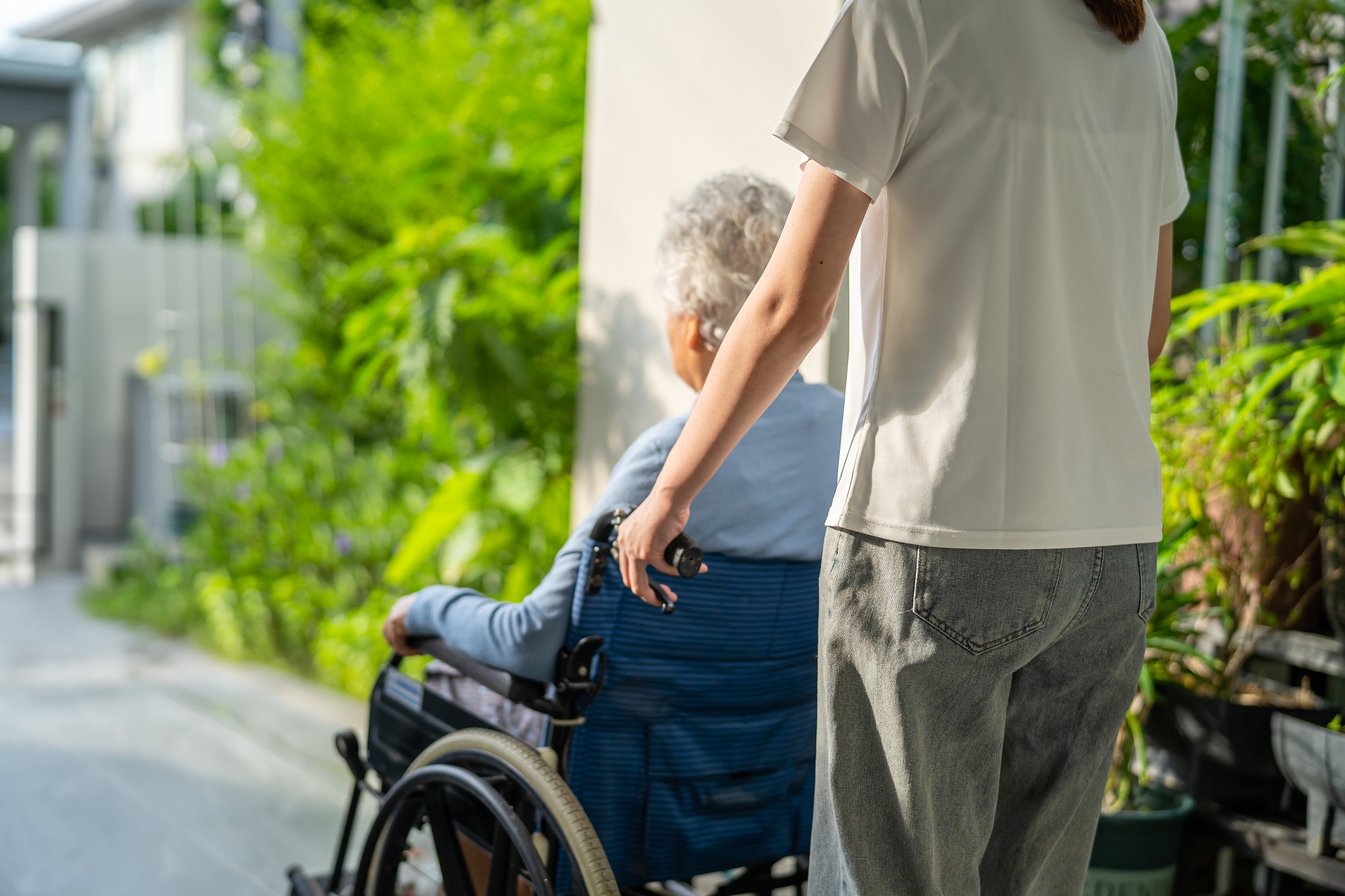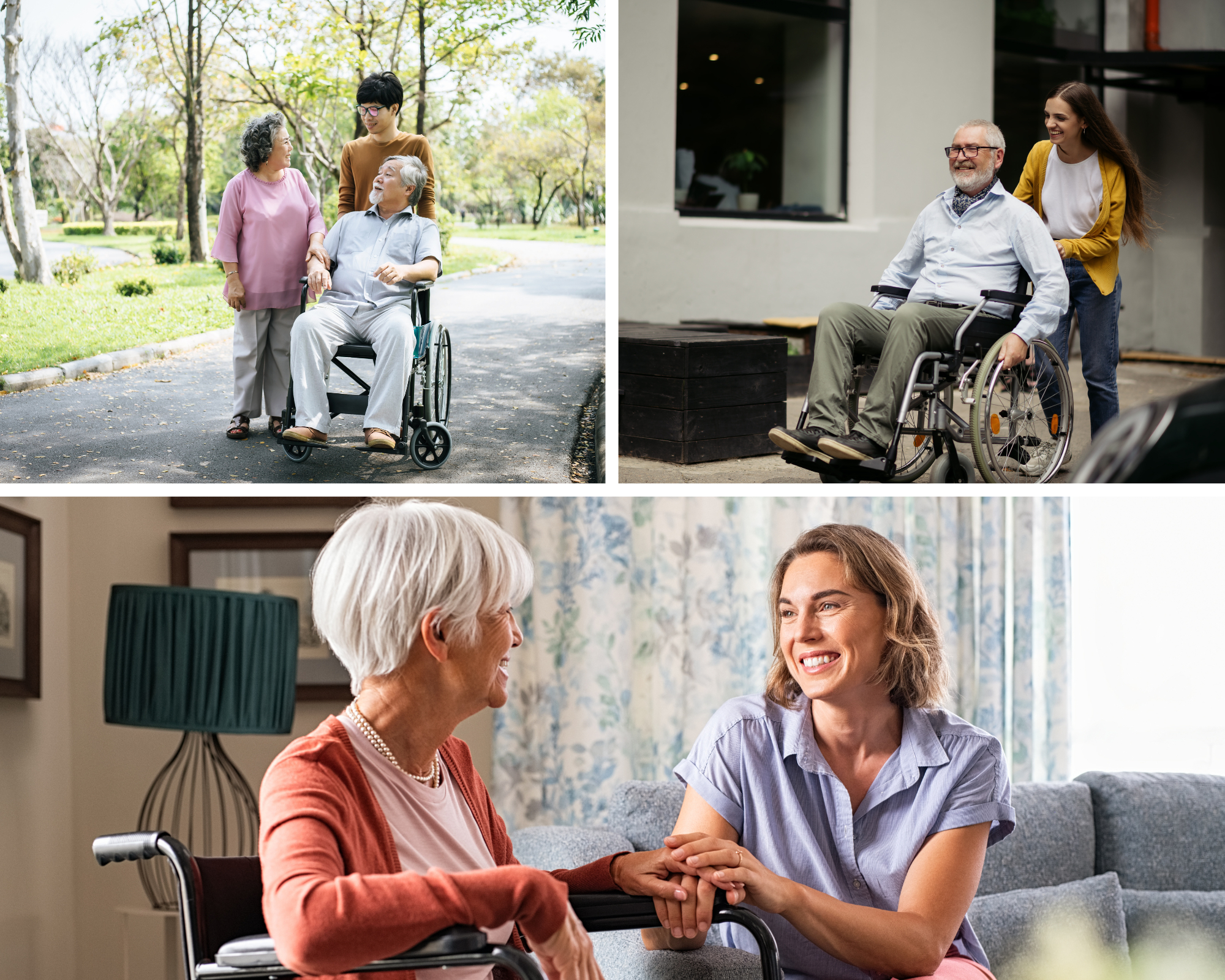
How to Apply for the Medicaid Caregiver Program
October 12, 2022How to Apply for the Medicaid Caregiver Program
In the United States, more than 53 million adults provide unpaid care to a loved one. This is roughly one in five adults, and that number will only rise as the baby-boomer generation reaches retirement. If you do not already provide care to a loved one, the chances are that you will in the years to come.
While the thought may initially be a frightening one, acting as a caregiver is one of the most rewarding experiences. It is fulfilling to see how your actions make a positive impact on the life of an elderly grandparent, parent, or other family members. However, as your loved one’s needs increase, you may find you have to reduce your work hours to support them.
This is a common issue shared among many family caregivers and is a problem, as most Americans cannot afford to lose income. When this happens, people are often left wondering: “is there any form of government assistance for me?”
The answer is yes! There is a Medicaid caregiver program that helps family caregivers on their path to being paid for their work. The process of how to apply for the Medicaid caregiver program is fairly simple.
How to apply for the Medicaid caregiver program
While Medicaid is reflected through coverage, the actual process is reflected through the Illinois Department on Aging (or IDoA). In the late 70s, the organization not only recognized the need for caregivers for seniors, but for paid family caregivers. In order to circumvent this problem, IDoA developed its Community Care Program.
Through this program, family caregivers receive training and support from a home care agency. This way, caregivers are equipped with the essential tools they need to provide their loved ones quality care. By the time the caregiver completes the program, they have valuable knowledge to use throughout their lives.
As the caregiver receives training, the care recipient should also apply for the Community Care Program. When the caregiver completes their training, the recipient can select their loved one to act as their at-home paid caregiver.
Each state has its own programs and eligibility requirements for home and community-based caregiving programs. If your loved one is out of state, this list of resources can provide further information.
What are the eligibility requirements for this program?
Potential caregivers must meet certain requirements before they can receive training. They must be at least 18, have a high school diploma/GED or one year of comparable experience, and reside in the state of Illinois. Upon meeting these qualifications, you can apply for the program, where you must pass background checks and complete orientation/training.
Your elderly loved one must meet certain qualifications as well in order to benefit from this program. To qualify, program participants must be aged 60 years or older, hold Illinois citizenship, be assessed for the need for long-term care, and have non-exempt assets of $17,500 or less.
Once I’m a caregiver, what services can I provide?
Now that you’ve gone through the proper steps to become a paid caregiver for your loved one, you can continue to provide all the support you already offered your loved one. Naturally, this varies from person to person, but there is one over-arching similarity between care plans: it is non-medical.
Home caregivers cannot provide any form of medical care to their care recipients. They can, however, assist with any activities of daily living their loved one requires.
These services include:
- Personal care. As your loved one ages, things like bathing, dressing, and toileting grow to be difficult. You may help your loved ones with this task so they stay confident and clean.
- Meal preparation. Whether it’s due to difficulty or lack of desire, many seniors stop cooking as they age. You may assist with meal preparation, cooking, and clean-up so they eat quality meals.
- Medication reminders. Many seniors take several medications at once. It can be difficult to keep track of what to take when to take it, and how much to take. You may help your loved one with medication reminders, as well as setting up an easy-to-use system.
- Light housekeeping. While it may not seem too arduous to you, cleaning the home involves a great deal of bending, lifting, and twisting that may be exhausting for seniors. Taking over light housekeeping will make their lives far more comfortable.
- Errands. When mobility grows to be a problem, or they no longer drive, running to the grocery store or post office can seem impossible for some seniors. Instead, you can pick up all their essentials.
- Brain games and activities. Remaining mentally sharp is crucial to the overall well-being of seniors. Keep their minds active by stimulating them with brain games and activities.
- Companionship and social interaction. Loneliness has serious impacts on the mental and physical health of seniors. Your companionship will mean more to them than you may think.
More likely than not, you’re already providing your loved one some, or all, of these services. This will help make your transition into paid care easier. The only major difference is that you are employed by a local home care agency.
Receive your training through Home Care Powered by AUAF
Home Care Powered by AUAF is contracted by the IDoA to provide the necessary training that allows family caregivers to receive compensation for their work. Our staff works closely with each of our new caregivers to guarantee all their questions are answered, and all their concerns are addressed.
Caregivers receive continued training throughout their time with Home Care Powered by AUAF. This ensures that they receive the most up-to-date care at all times. As a result, their quality of life is always the best it can be.
For more than 30 years, our staff has helped seniors in the Chicago area live comfortably, and confidently, in their own homes. We have also played a role in helping many unpaid caregivers receive compensation for their work. In this way, everyone wins: caregivers receive payment as they deserve, and their loved ones receive some of the best care in the business from someone they trust.
If you’re ready to become a paid family caregiver, call us at 773-274-9262. If you’re curious about hiring one of our caregivers for your loved one instead, we will be happy to talk to you about our program.
Articles:
-
How to Use FaceTime: a Senior’s Guide
March 20th, 2024 -
The Best Organic Cleaning Products for Caregivers
March 19th, 2024 -
Celebrating St. Patrick’s Day with Seniors
March 14th, 2024 -
Intellectual Activities for Seniors to Keep their Brains Stimulated
March 13th, 2024 -
Tips for Communicating with Seniors with Hearing Loss
March 12th, 2024 -
How to Learn a New Language as an Older Adult
March 7th, 2024 -
Foods that Support Bone Health in Seniors
March 6th, 2024 -
A Note to Our Staff for Caregiver Appreciation Day
March 1st, 2024 -
The Importance of a Senior/Caregiver Bond
February 21st, 2024 -
Recreational Sports as Fitness for Seniors
February 27th, 2024 -
Exploring the Wonders of Reminiscence Therapy
February 15th, 2024 -
Staying Educated on Alzheimer’s Disease and Dementia Care
February 14th, 2024
Call Now! 773.274.9262







